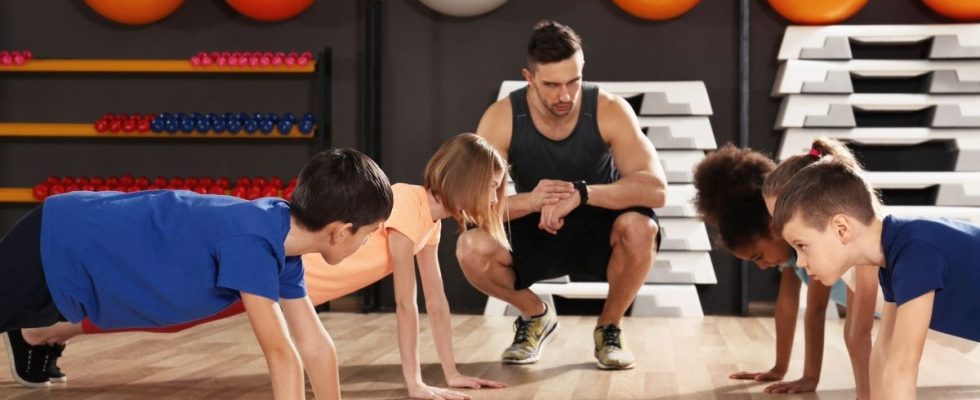Published on
Updated
Reading 2 min.
in collaboration with
Vincent Roche (physiotherapist)
And
Pierre-Marie Barry (Sports Coach)
Are you hesitant about enrolling your child in the gym but concerned about the impact this may have on their health? A sports coach and a physiotherapist will explain to you at what age it is ideal to practice bodybuilding and why.
The children’s gym: good or bad idea?
Access to a weight room is set at the age of 16 in France. To register, a minor must provide parental authorization when registering, as well as a medical certificate attesting to their ability to practice this sport.
Physiotherapist Vincent Roche knows the main fears of these patients at the idea of their child practicing bodybuilding. Most of them fear that they will get injured and that the activity will not be adapted enough for their safety. But our expert wants to be reassuring: “In fact, your child can benefit from many benefits from strength training. In fact, this practice increases its stability and provides better joint coordination. On the other hand, activity develops your child’s strength, muscular endurance and vascular health. Its bone mineral density increases, reducing the risk of fracture. Finally, your child will have better posture and a more balanced body composition.”
Concerning safety, the physiotherapist emphasizes that it is important that the child is not left without supervision: “The problem with indoor sports for children is the lack of supervision. So that your child can practice in complete safety, it is important that he or she is accompanied by a professional who takes their age into account and adapts the activity according to it.“.
Which exercises should be favored according to age?
Depending on age, musculature is not the same. According to physiotherapist Vincent Roche: “A child’s musculature is not yet developed, unlike that of an adolescent. The latter has more mature muscles and can therefore practice anaerobic exercises, requiring strength and power. A young child, as for he is inexhaustible. He has a great capacity to recover and can last hours on an endurance exercise. In addition, he has a more playful perception of effort than adults, which represents an advantage. Thus, They are very strong in aerobic exercises.”
Schematically, aerobic exercises are endurance activities (running, swimming, skiing, walking, running, jumping rope, etc.) and anaerobic exercises are intended to develop muscular strength (weight training, HIIT, weightlifting…).
When enrolling their child in the gym, most parents are afraid that their growth will be slowed down. According to sports coach Pierre-Marie Barry, “before the age of 16, the child is growing and can be more easily subject to injuries. In reality, growth does not stop with bodybuilding but it is especially possible injuries that can be dangerous when the muscle does not has not finished building itself.
Thus, any activity at the gym can be practiced regardless of age, provided that for a child it is suitable, secure and fun and that age and parental authorizations are respected.

